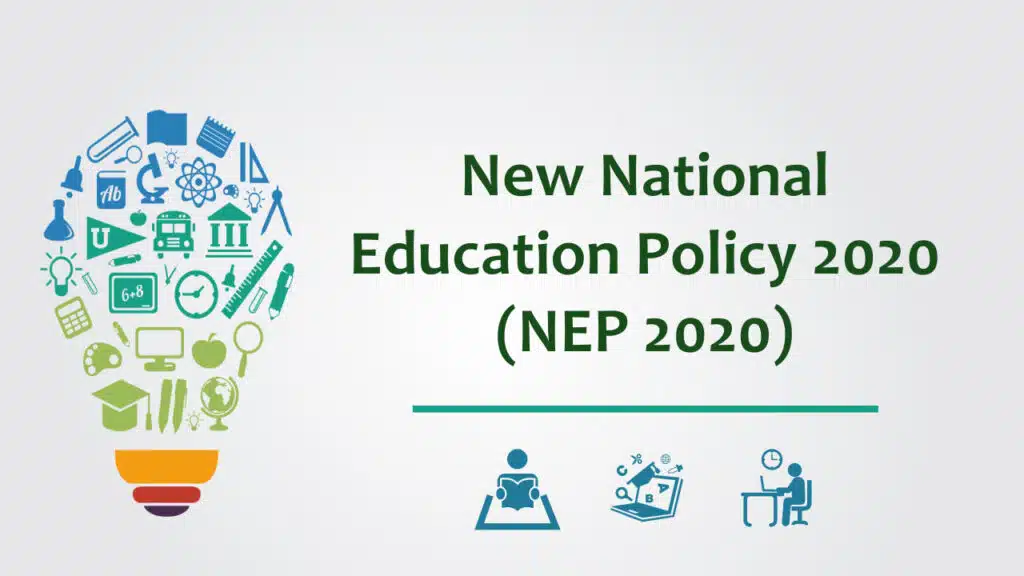The National Education Policy of India 2020 (NEP 2020), approved by the Union Cabinet of India on 29 July 2020, outlines the vision of the new education system of India. It replaces the previous National Policy on Education, 1986. The vision of the policy is to build an education system rooted in Indian ethos that contributes directly to transforming India by providing high-quality education to all, thereby making India a global knowledge superpower.
Highlights of National Education Policy (NEP 2020) for school educations
- 1.Focus on Early Childhood Care and Education (ECCE) & Foundational Literacy and Numeracy (FLN)
- 2.Curtailing dropouts and ensuring universal access at all levels of school education
- 3.Learning Should be Holistic, Integrated, Enjoyable, and Engaging
- 4.Teacher Empowerment
- 5.Equitable and Inclusive Education: Learning for All
- 6.Standard-setting and Accreditation for School Education
- 7.Adoption of pedagogically sound teaching & learning practices
- 8.Adoption of technology in teaching, learning and assessments
THE NEW 5+3+3+4 ACADEMIC STRUCTURE
10+2 refers to two years of schooling post grade 10. According to India’s new National Education Policy (NEP) 2020, 10+2 schooling system in India is set to be replaced by a new 5+3+3+4 system. Here is the age-wise breakdown of the different levels of the school education system based on the new education policy 2020
Transforming Exams
As per the National Education Policy 2020, Exams will also be made ‘easier’. They will test primarily core competencies to eliminate the “Coaching Culture”. Students will be allowed to take Board Exams twice in any given year, to eliminate the high stakes of board exams.
In accordance with the New Education Policy 2020, board exams in certain subjects could be redesigned. Board exam questions to have two types:
- 1.Objective type with multiple-choice questions
- 2.Descriptive type
The National Testing Agency (NTA) will offer a high-quality common aptitude test, as well as specialized common subject exams in various subjects, at least a twice every year as prep for entrance examinations.
THE 3 LANGUAGE POLICY
The National Education Policy 2020 (NEP 2020) has emphasised on the use of mother tongue or local language as the medium of instruction till Class 5 while recommending its continuance till Class 8 and beyond. It recommends that all students will learn three languages in their school under the formula. The three languages learned by children will be the choices of States, regions, and of course the students themselves. However, at least two of the three languages should be native to India, one of which is most likely to be the local/ regional language. The rule will apply to both private and public schools. High-quality textbooks, including science, will be made available in-home languages. In cases where home-language textbook material is not available, the language between the teachers and students will still remain the home language wherever possible.
The National Education Policy 2020 encourages teachers to use a bilingual approach, including bilingual teaching-learning materials, with those students whose home language may be different from the medium of instruction.


